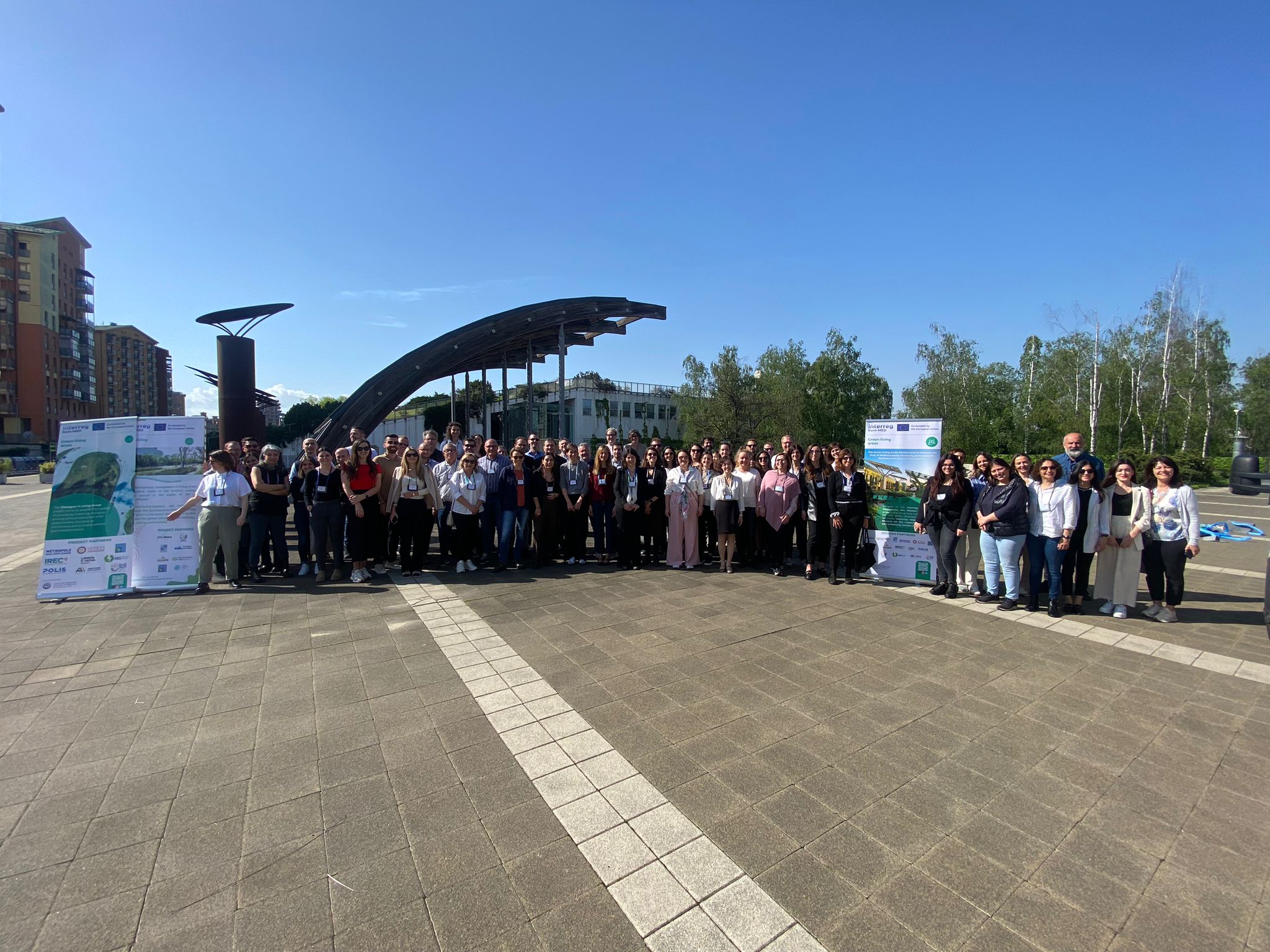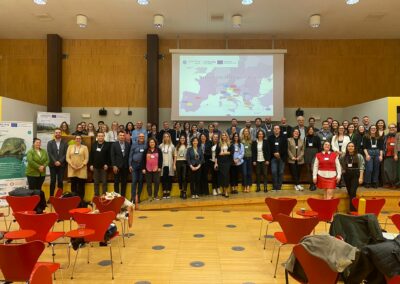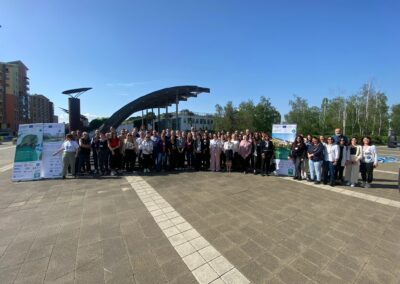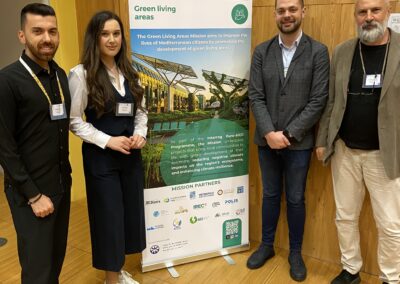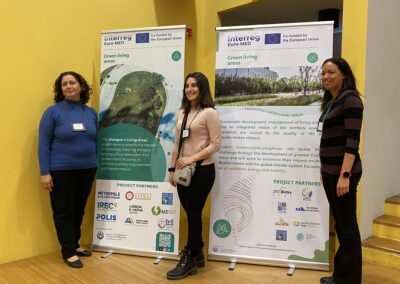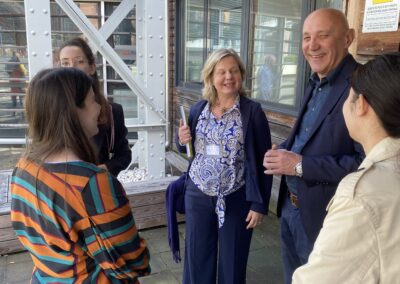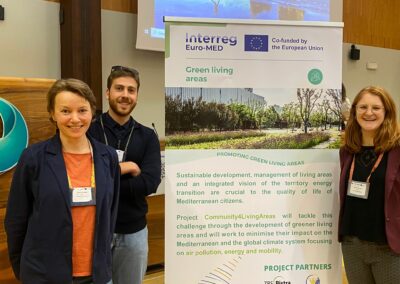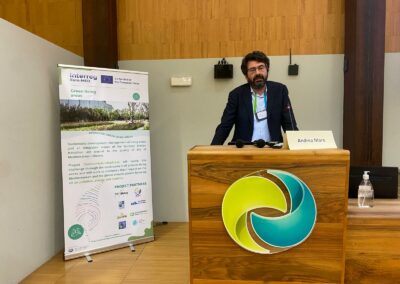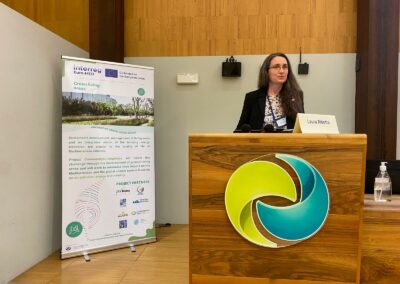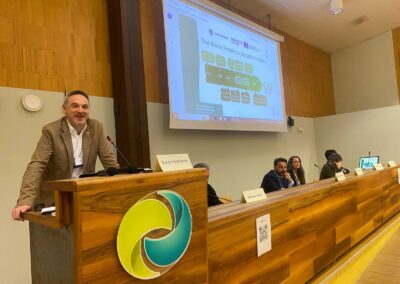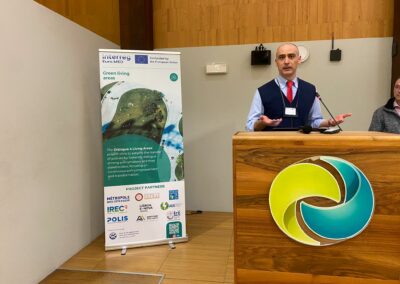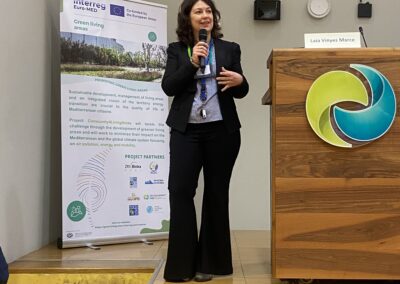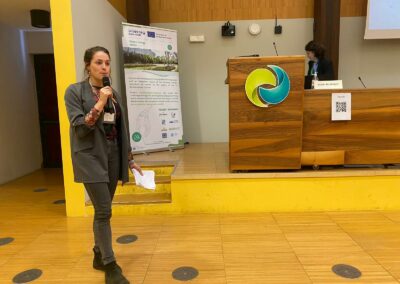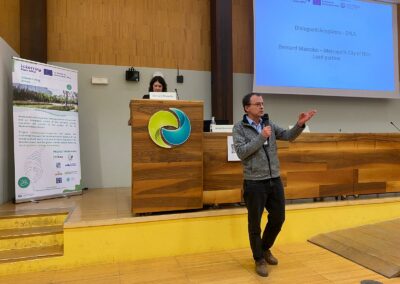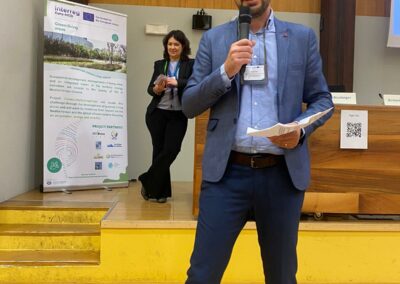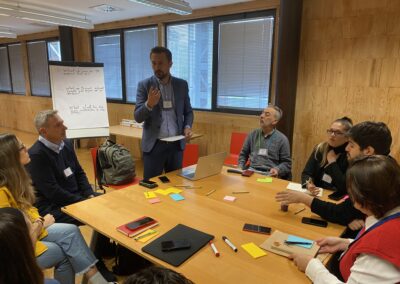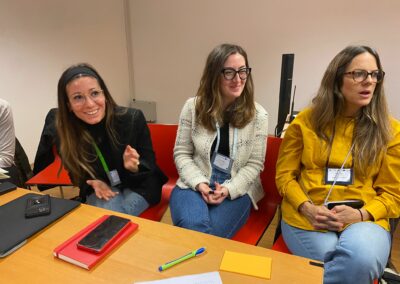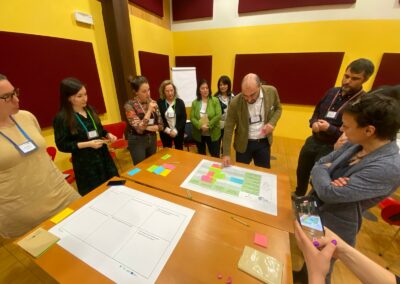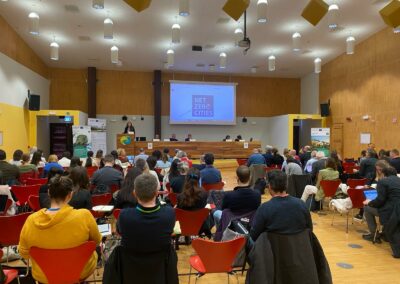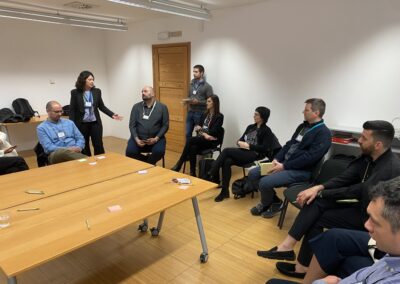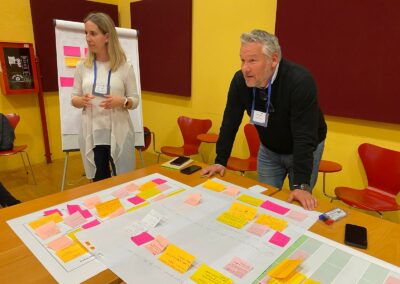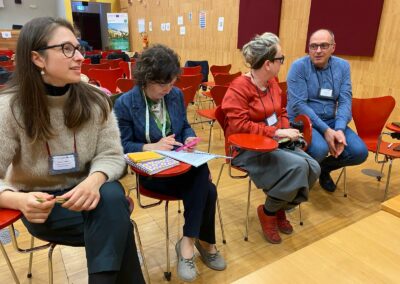The first day was entirely dedicated to community building, with mutual presentations, a co-creation workshop, and networking activities. The second day, open to the public, allowed for the exchange of best practices related to tools, strategies, and policy instruments for promoting greener territories and engaging citizens in the transition, as well as the official launch of the Institutional Dialogue Process. The event provided the first opportunity for the Community to meet, understand one another’s actions, and ultimately amplify the voice of their projects and impact. The event was organised by Community4LivingAreas with the collaboration of Dialogue4LivingAreas.
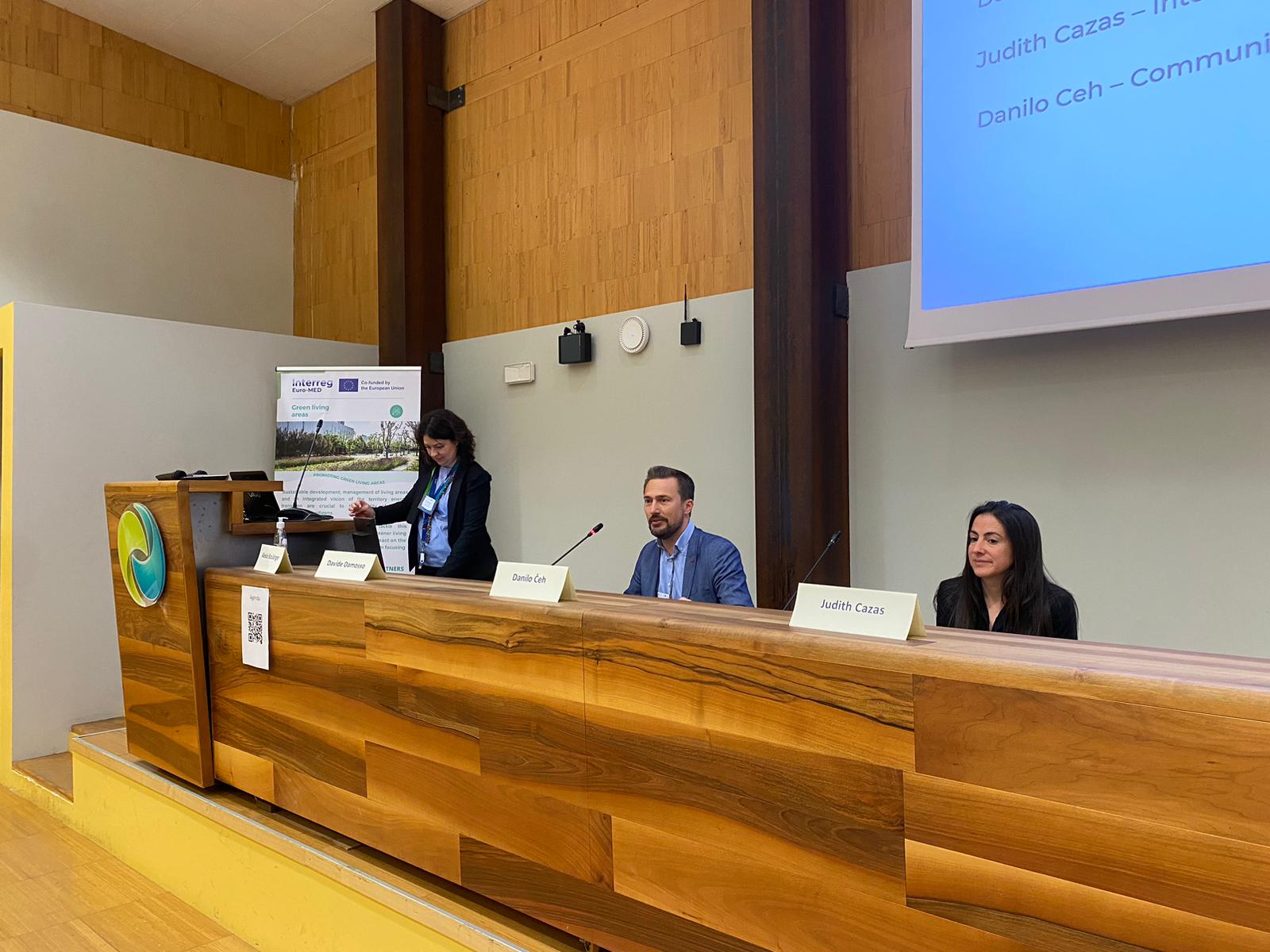
After setting the tone for the event, the 19 thematic projects were called to pitch their aims and key expected outcomes over the coming years. The pitches allowed each project to understand the activities of the others and to get to know their other community members. This allowed for the discovery of synergies and potential joint actions between projects to share goals and amplify results and actions.
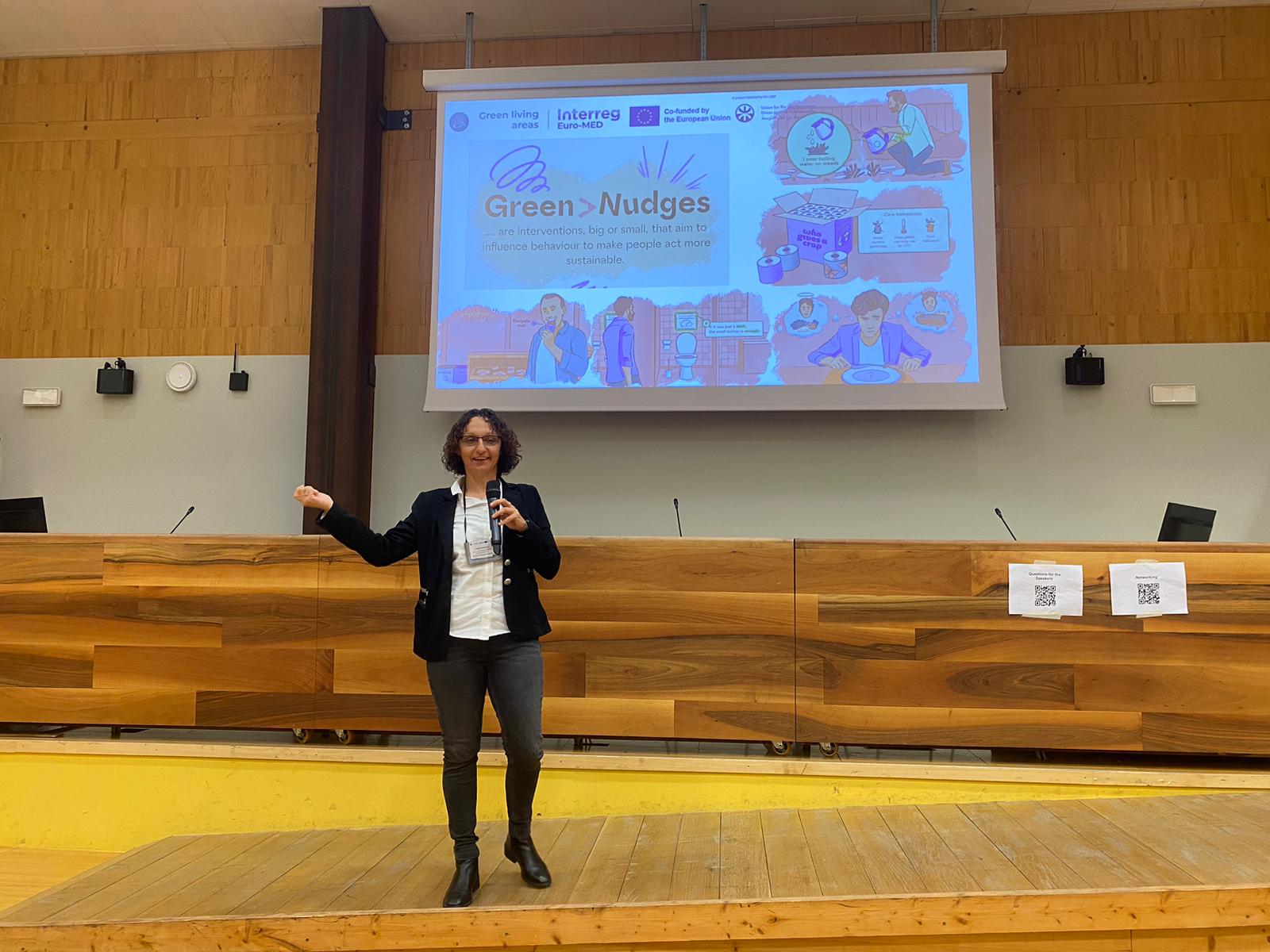
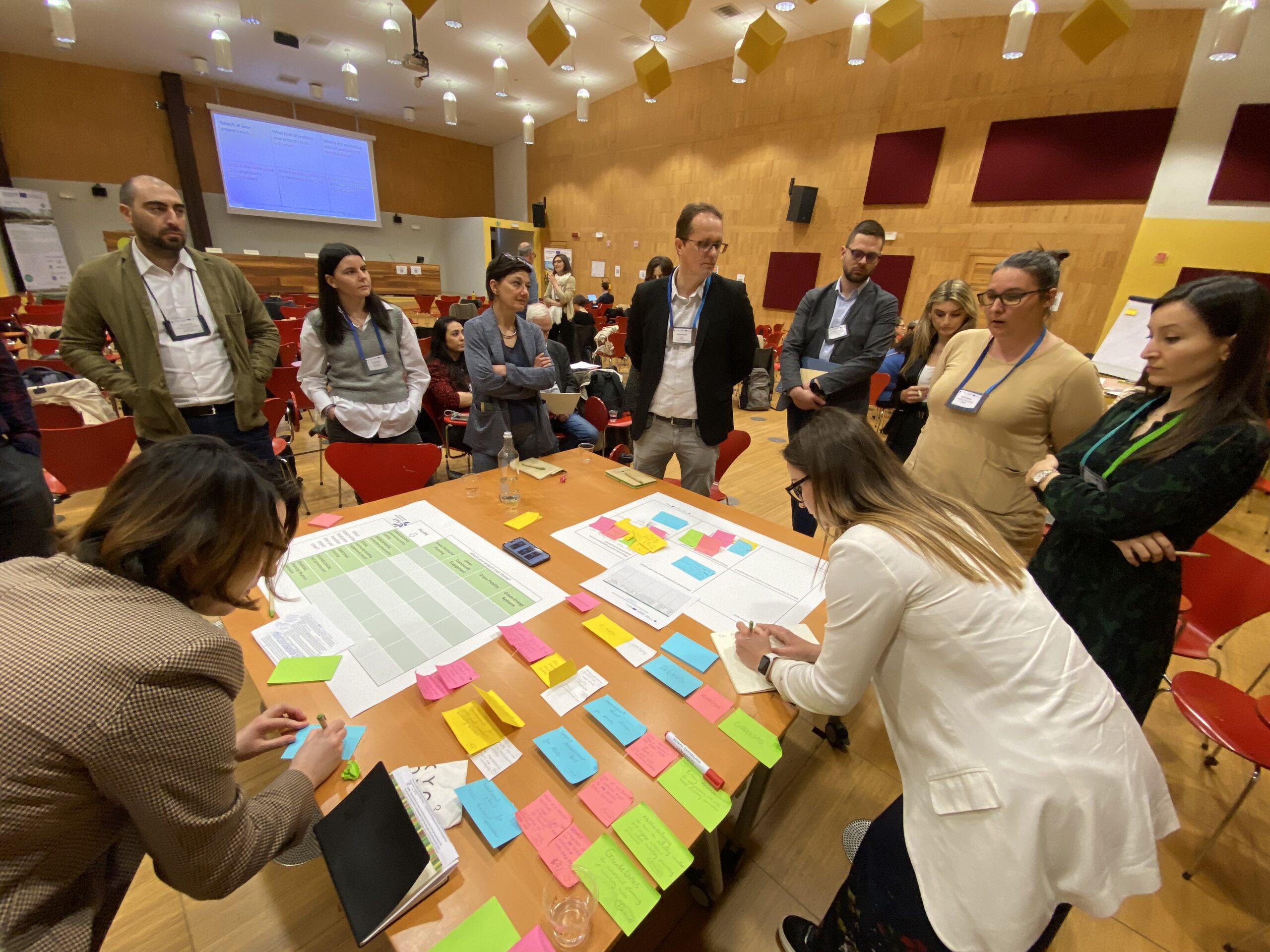
1. Green Mobility
2. Green Energy Systems
3. Green & Climate Change Resilient Spatial Planning
4. Financing the Green Transition
5. Green Community Engagement
They were invited to work directly with the proposal of the ETU model and share what tools and solutions they will develop and who the end users will be. These discussions started an integrated building process to gather the projects’ results and to transfer them through the ETU model to regional and local public authorities and other stakeholders. The Thematic Working Groups will be a staple of the Green Living Areas Mission working in close contact, and meeting regularly, welcoming new Thematic Projects as these join the Mission after the results of upcoming calls.
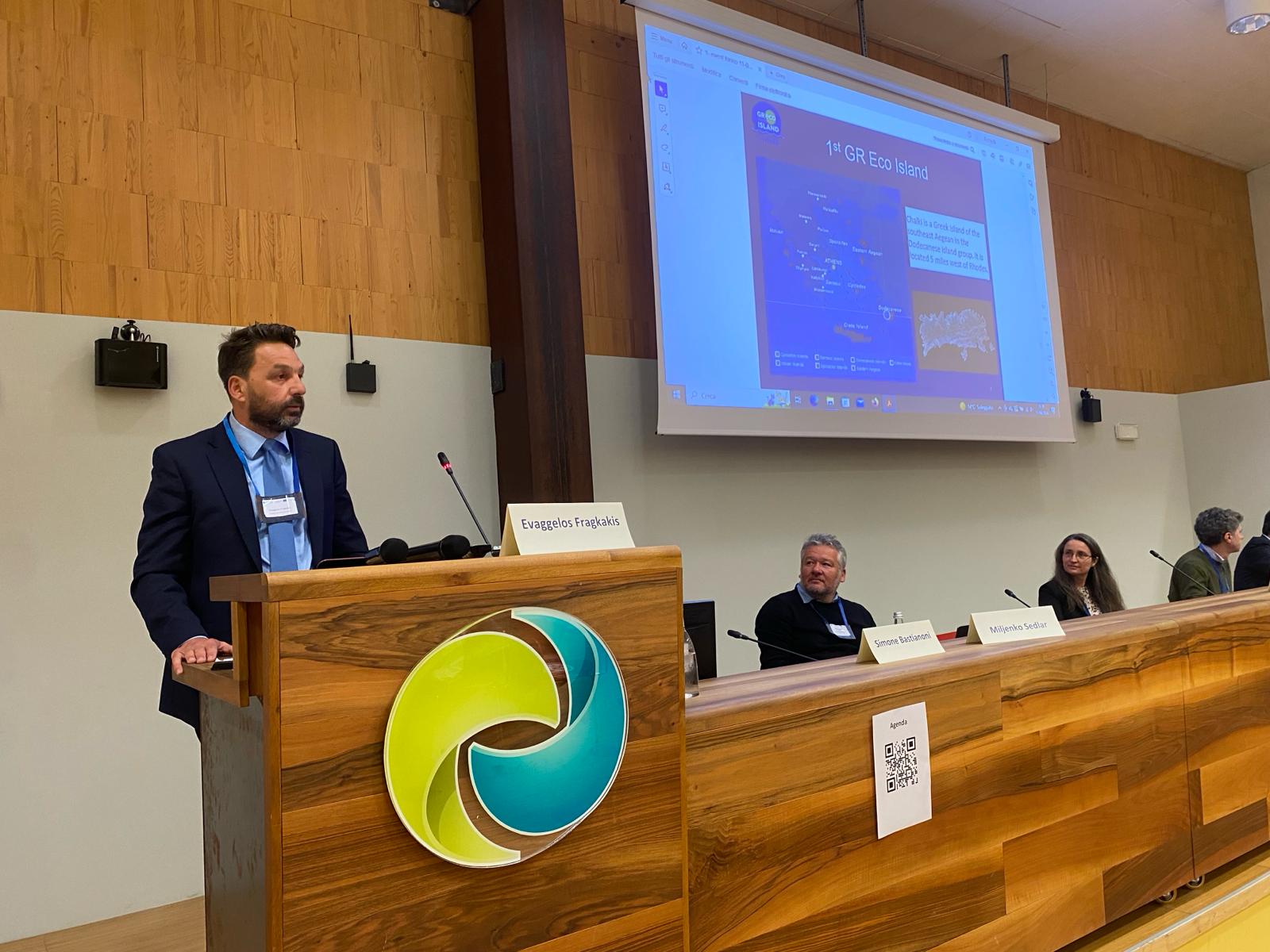
He then introduced the keynote speaker, Elodie Bossio, Deputy Director at FEDARENE who discussed the EU Mission on Adaptation to Climate Change. She discussed key tools and initiatives on the energy transition for regions and regional energy agencies.
To ensure a holistic approach to green living areas and actions under the INTERREG Euro-MED programme, representatives Alessandro Daraio from Innovative Sustainable Economy Mission and Alexia Spyridonidou from Sustainable Tourism Mission were invited to present their activities and actions. They advocated for collaboration between missions and projects in the Mediterranean to promote innovative, cross-cutting and impactful policymaking. Finally, Diana Zanabria Sequeiros of IREC – Institut de Recerca en Energia de Catalunya, Marina Kouta of the University of Patras, and Cláudia Ribeiro of POLIS Network, D4LA project partners, introduced the dialogue process for policymaking. To spark the dialogue, stakeholders participated in an interactive activity to share experiences and expectations for the coming years of the Green Living Areas Mission.
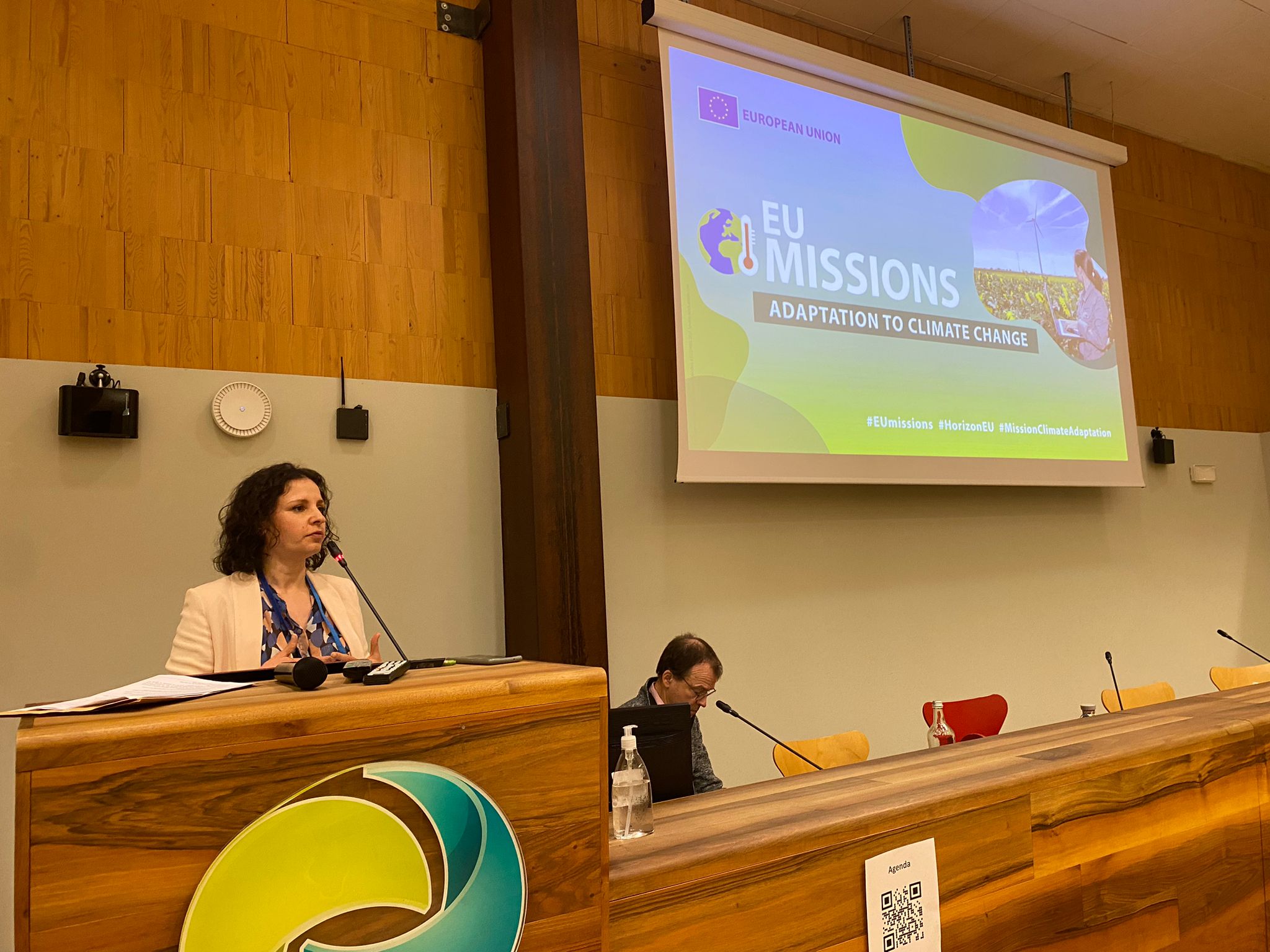
The event closed with an interactive activity designed to break down barriers and set forth a pathway for positive collaboration between project partners and thematic projects. The Thematic Community will next meet in person in Barcelona in Spring 2025.
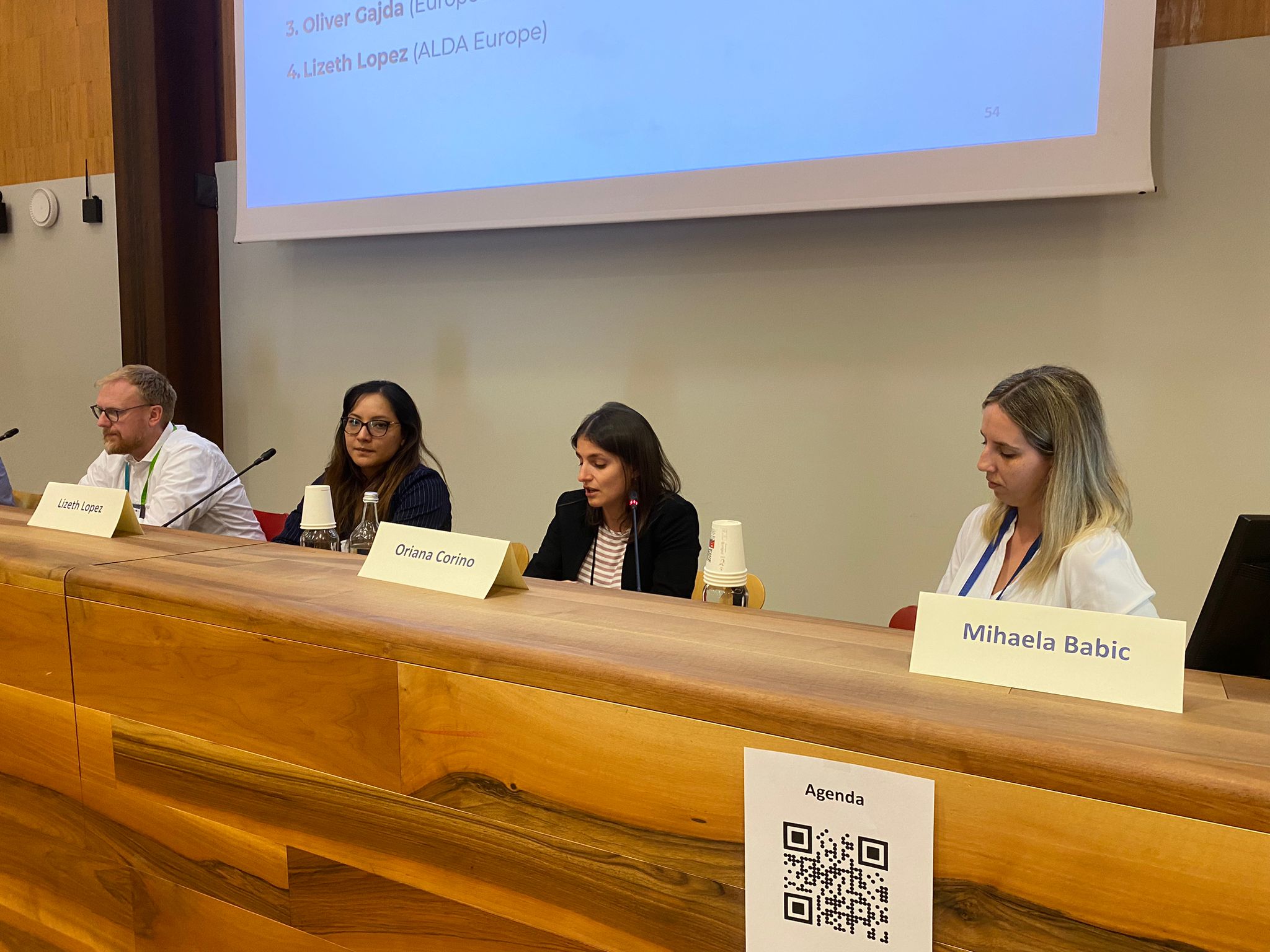
To access all the presentations from Day 1 (10th April) click here. To access all the presentations from Day 2 (11th April) click here.

